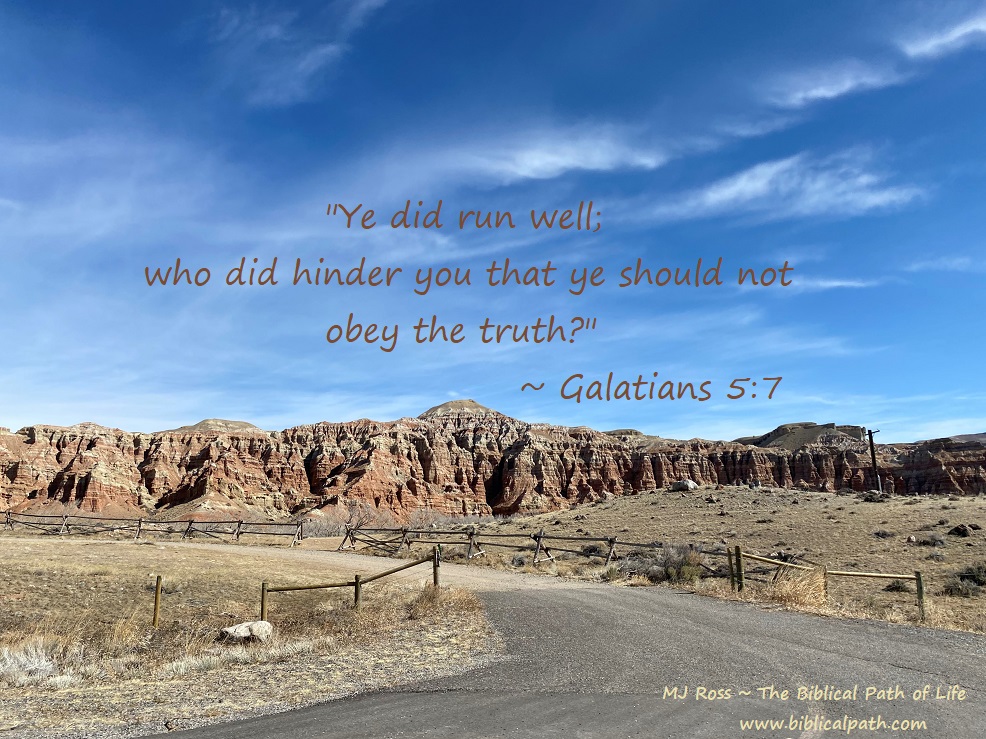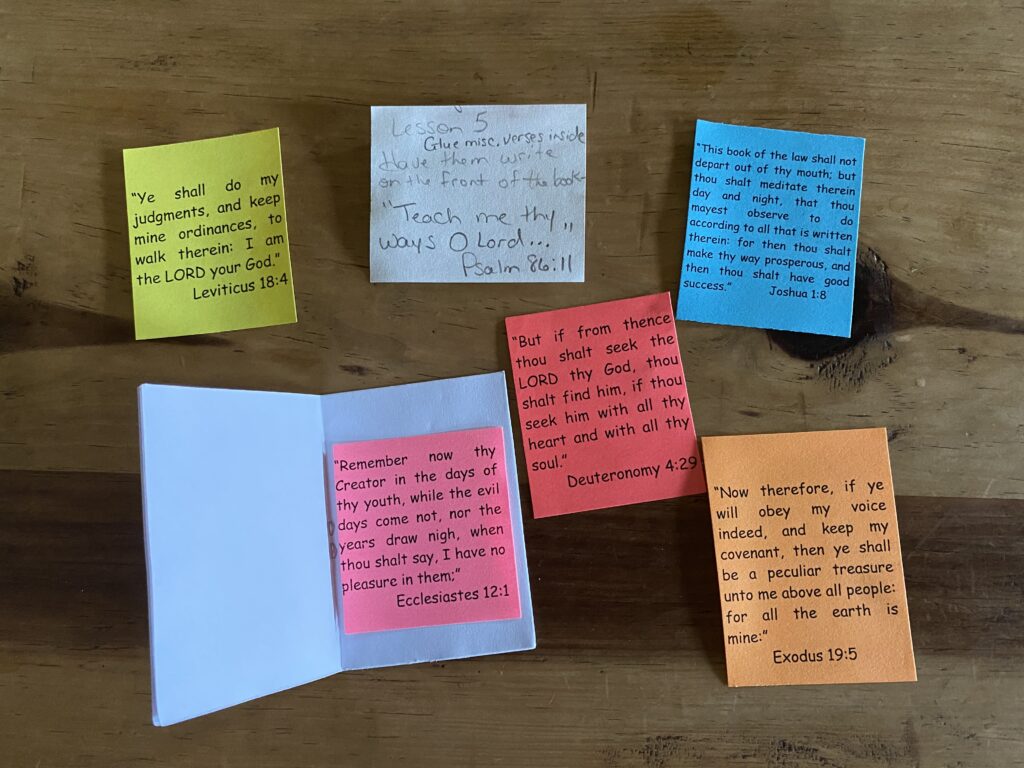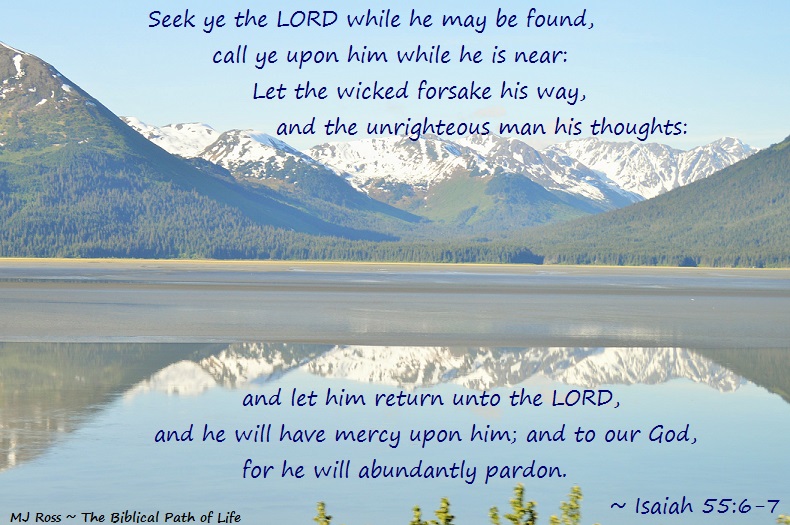
“22. That ye put off concerning the former conversation the old man, which is corrupt according to the deceitful lusts; 23. And be renewed in the spirit of your mind;”
Ephesians 4:22-23
Much of the Old Testament is a physical picture of the spirit life described in the New Testament. One vivid picture is in the taking of the land of Canaan – the Promised Land. Remember that this was the land promised to Abraham and his descendants. When the Israelites came out of Egypt, they had grown to become a mighty nation. When the people finally prepared to conquer the Promised Land, the tribes of Reuben, Gad and Manasseh wanted to stay on the eastern side of the Jordan River. This was not where God wanted them. However, concession was made for them to remain on the eastern side of the Jordan River.
Consider what they saw: There was plenty of grassland for their animals. “Now the children of Reuben and the children of Gad had a very great multitude of cattle: and when they saw the land of Jazer, and the land of Gilead, that, behold, the place was a place for cattle” (Numbers 32:1). They saw the land, and wanted it. They desired this place instead of the land the God had for them. So the children of Reuben and Gad asked Moses if they could stay where they were. Moses declared it would discourage the other Israelites who must go to war to conquer their land while they stayed in that grassland. “And wherefore discourage ye the heart of the children of Israel from going over into the land which the LORD hath given them?” (Numbers 32:7). Moses warned them that they were acting like the generation before them who refused to enter into the Promised Land. “And, behold, ye are risen up in your fathers’ stead, an increase of sinful men, to augment yet the fierce anger of the LORD toward Israel” (Numbers 32:14). After promising that they would help the children of Israel conquer the land, and then return to the other side of the Jordan to live and raise their animals, Moses gave them the land. “And Moses gave unto them, even to the children of Gad, and to the children of Reuben, and unto half the tribe of Manasseh the son of Joseph … the land, with the cities thereof in the coasts, even the cities of the country round about” (Numbers 32:33).
Why was it wrong for them to want to stay on the eastern side of the Jordan River?
Consider that this was not the land that God had chosen and planned to give them. It was the land that these tribes saw and wanted. They thought it was a logical place to stay – for there was much grassland for their cattle. Besides, they agreed to help the other Israelites conquer the land, so as to not discourage them, and then return to the land they had chosen. There were many problems with their choice. They were never included within the land of Israel. At one point, the children of Israel almost went to war against them (see Joshua 22). These tribes were the first to fall into idolatry, and the first tribes carried captive out of the land. All because they chose to live on the fringe of where God wanted them to be.
This is a great physical picture of some Christians’ lives. There are those who trust in Christ, yet they live as superficial Christians in many respects. They do not fully enter into the lifestyle that God would have for them in this new life. Many choose the things of this world walking as others, in the vanity of their minds. “17. This I say therefore, and testify in the Lord, that ye henceforth walk not as other Gentiles walk, in the vanity of their mind, 18. Having the understanding darkened, being alienated from the life of God through the ignorance that is in them, because of the blindness of their heart” (Ephesians 4:17-18).Remember that the tribes that chose to refuse the land God had for them, choosing instead the land that they saw and wanted. This alienated them from the life that God wanted for them – in the Promised Land. Instead, they were susceptible to extra wars with their brethren, idolatry, and eventually being cut short as a people in the land (carried captive). This is a picture of the Christian life that walks according to the world and its system, contrary to what God has planned. This is a life “alienated from the life of God”. Because of the blindness of that heart (the hardheartedness), he chooses to live on the fringe of where God wants him to be.
Paul encouraged the church at Ephesus how to walk (according to the truth in Jesus), putting on the new man. “21. If so be that ye have heard him, and have been taught by him, as the truth is in Jesus: 22. That ye put off concerning the former conversation the old man, which is corrupt according to the deceitful lusts; 23. And be renewed in the spirit of your mind” (Ephesians 4:21-23). Christians are to know how to live according to God’s Word, then forsake the old way of life (living according to the world), and choose to live a new life pleasing God. Read how Paul described this: “And that ye put on the new man, which after God is created in righteousness and true holiness” (Ephesians 4:24).
Have you put off the old man with his ways, and then put on the new man, choosing to fully enter the Christian life?


